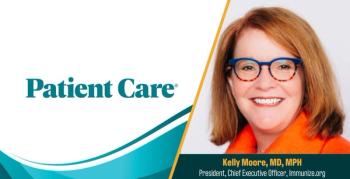
What is the Evidence on Improvised PPE?
Improvised PPE suggested or used against COVID-19 include ski goggles, scuba masks, motorcycles helmets, and band-aids. Does any of it work?
The recent PPE shortages caused by COVID-19 are leading to horror stories across the country of frontline healthcare workers using
Here, we’ll take a look at the available evidence for some of the most commonly mentioned improvised PPE.
Ski Goggles, Scuba Masks, More
A recent
Homemade Masks
Homemade, cloth masks are some of the most talked-about alternative PPE items, with companies and individuals all over the country pitching in to make them and help alleviate hospital shortages of surgical masks and N95 respirators.
Do they work though?Unfortunately, the evidence is mixed.
One now widely-read
A much smaller
One critical weakness in this study, other than the fact it was a small number of individuals, is that all the volunteers were healthy and thus the microorganisms collected were mostly likely normal oral, bacterial flora. Since a virus, like influenza or COVID, is much smaller, it remains to be seen whether a cotton t-shirt would prevent transmission at all. This study was also more of a theoretical study and did not tie homemade mask use to a hard outcome, like incidence of new viral infection cases.
Reuse of Single-use PPE
In times of desperation and forced to choose between homemade PPE and no PPE, many hospitals and healthcare providers are reusing single-use PPE. While certainly not ideal nor recommended, efforts have been made to find ways to safely reuse them.
A
by the European Centre for Disease Prevention and Control, Europe’s CDC equivalent, provides an excellent summary of the situation and any available evidence. In it, they cite a report from the US National Academy of Sciences on the possibility of reusing single-use PPE; the report presents significant concerns in the reuse of PPE, stating “the committee could not identify any existing [sterilization] method that effectively removes the viral threat, is harmless to the user, and does not compromise the integrity of the various elements of the facemask.”
They went on to provide the following suggestions, if necessary:
- Extended use, rather than reuse
- Avoiding contamination of the respirator by a) placing a medical mask over it (obviously impractical right now considering shortages) or b) wearing a face shield that can be cleaned and reused.
Recently, however, a health-system in Boston
Compounded Hand Sanitizer
OK, so compounded hand sanitizer isn’t technically PPE, but it is certainly improvised and much talked-about. The FDA has developed
As a pharmacist, though, I can fully appreciate that compounding is a specialty and should be treated as such. Perhaps most important to consider is whether the pharmacy doing the compounding has experience compounding? Do they have the equipment to accurately make the product? These are not trivial questions; most of us can remember the nightmare that ensued from the
While maybe not well-known among providers, I highly recommend with any compounded product, including hand sanitizer, that you only refer your patients to a
For more COVID-19 coverage for primary care, visit the Patient Care® Online
Stay in touch with Patient Care® Online:
→Like us on
Newsletter
Enhance your clinical practice with the Patient Care newsletter, offering the latest evidence-based guidelines, diagnostic insights, and treatment strategies for primary care physicians.


































































































































